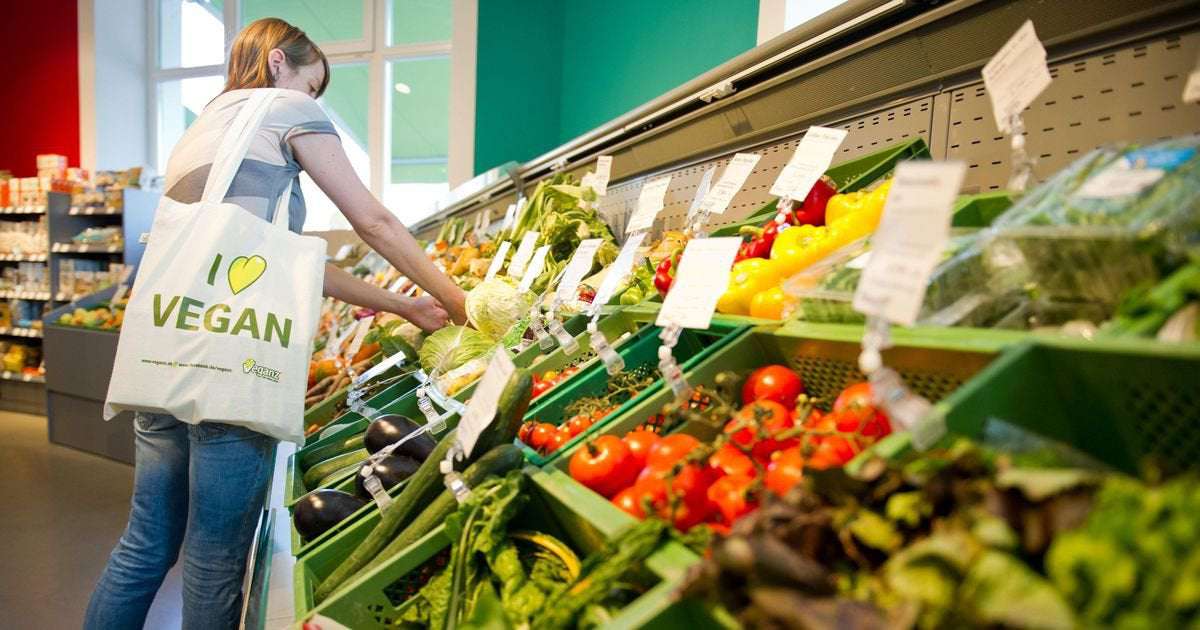Our free email newsletter sends you the biggest headlines from news, sport and showbiz Sign up Thank you for subscribing We have more newsletters Show me See our privacy notice Invalid Email
Vegan diets more than double the risk of a broken hip, warns new research.
A study of more than 50,000 British people tracked over two decades found giving up animal flesh weakens bones - and can trigger osteoporosis.
Compared with people who ate meat and fish, scientists found that those with lower calcium and protein intake were especially prone to hip, leg and spine fractures.
Vegans were also 43 per cent more likely to suffer a fracture anywhere. In particular this applied to the leg, vertebrae and collarbone.
The latest research by the Vegan Society says there are now 600,000 vegans in Britain.
Study lead author Dr Tammy Tong, an Oxford University nutritional epidemiologist, said: "The biggest differences were for hip fractures, where the risk in vegans was 2.3 times higher than in people who ate meat - equivalent to 15 more cases per 1,000 people over 10 years."
It is the most common serious injury in older people. There are more than 76,000 cases a year, costing the NHS £1 billion annually.
Women are most vulnerable because their bones naturally lose strength after the menopause as levels of oestrogen drop.
Famous celebrity vegans include Natalie Portman, Ellie Goulding, Pamela Anderson, Sir Paul McCartney and Joaquin Phoenix.
The most comprehensive analysis of its kind was based on participants of the EPIC-Oxford study who were recruited between 1993 and 2001 - around three quarters of whom are women.
Around 29,400 ate meat, nearly 17,500 were vegetarians or vegans and just over 8,000 were fish eating pescatarians.
Dr Tong said: "We found vegans had a higher risk of total fractures which resulted in close to 20 more cases per 1000 people over a 10-year period compared to people who ate meat."
Participants' diets were assessed initially, and then again in 2010. They were followed up until 2016, for 18 years on average, for the occurrence of fractures.
Fracture risk was partly reduced once BMI (body mass index) and dietary calcium and protein consumption had been taken into account.
Dr Tong explained: "Vegetarians and vegans generally have lower BMI than meat eaters.
"This is associated with a higher risk of hip fractures, and low intakes of calcium and protein have both been linked to poorer bone health."
Possible explanations include the cushioning against impact force during a fall, enhanced oestrogen production with increased adiposity or stronger bones from greater weight-bearing.
Dr Tong said: "This study showed vegans, who on average had lower BMI as well as lower intakes of calcium and protein than meat eaters, had higher risks of fractures at several sites.
"Well-balanced and predominantly plant-based diets can result in improved nutrient levels and have been linked to lower risks of diseases including heart disease and diabetes.
"Individuals should take into account the benefits and risks of their diet, and ensure they have adequate levels of calcium and protein and also maintain a healthy BMI, that is, neither under nor overweight."
The researchers were unable to differentiate between fractures caused by poorer bone health - such as those due to a fall or accident as information was not available.
Most participants were white so generalisability to other populations or ethnicities may be limited.
This could be important considering previously observed differences in bone mineral density and fracture risks by ethnicity.
More studies are needed from different populations, including from non-Europeans, as well as cohorts with a larger proportion of men, they said.
During the period a total of 3,941 occurred including 566 arm, 889 wrist, 945 hip, 366 leg, 520 ankle and 467 fractures at other main sites, defined as the clavicle, ribs and vertebrae.
The authors observed no significant differences in risks between diet groups for arm, wrist or ankle fractures once BMI was taken into account.
Dr Tong added: "Fractures in adulthood and older ages are a common occurrence which pose a significant burden to health systems worldwide.
"Previous epidemiological studies have shown that vegetarians had lower bone mineral density than non-vegetarians, but the associations of vegetarian diets with fracture risks are unclear.
"Potential risk differences are plausible however,owing to differences in several dietary factors, such as the substantially lower intakes of calcium in vegans, lower intakes of dietary protein in both vegetarians and vegans, and the lower BMI of non-meat eaters."

blessantsblants on November 24th, 2020 at 14:06 UTC »
This study doesn’t take into account the fact that 12.33% of vegans are in or have associations with vegan fight clubs.
yerallshit on November 24th, 2020 at 12:33 UTC »
Okay sure, but how do those of us on the pizza and beer diet stack up?
jerricarae on November 24th, 2020 at 12:25 UTC »
What about vegans compared to vegetarians?